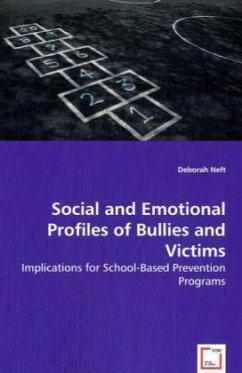
The Affective Profiles Model
20 Years of Research and Beyond
Herausgegeben: Garcia, Danilo

PAYBACK Punkte
57 °P sammeln!
This timely volume provides an up-to-date exploration of the affective profiles model, a person-centered means of understanding the affective system. It presents the etiology underpinning the affective system and compares the model with other existing personality models, such as the Big Five Model, and the Cloninger's Biopsychosocial Model. Most important, it examines the affective profiles model in relation to well-being, which includes life satisfaction, as well as psycho-logical health. As such, it illuminates the problems of depression, anxiety, and sleep disorders. Based on a wealth of lo...
This timely volume provides an up-to-date exploration of the affective profiles model, a person-centered means of understanding the affective system. It presents the etiology underpinning the affective system and compares the model with other existing personality models, such as the Big Five Model, and the Cloninger's Biopsychosocial Model. Most important, it examines the affective profiles model in relation to well-being, which includes life satisfaction, as well as psycho-logical health. As such, it illuminates the problems of depression, anxiety, and sleep disorders. Based on a wealth of longitudinal, cross-cultural and intervention studies, this book offers a critical view of the affective profiles model that will enrich both further research and clinical practice.














